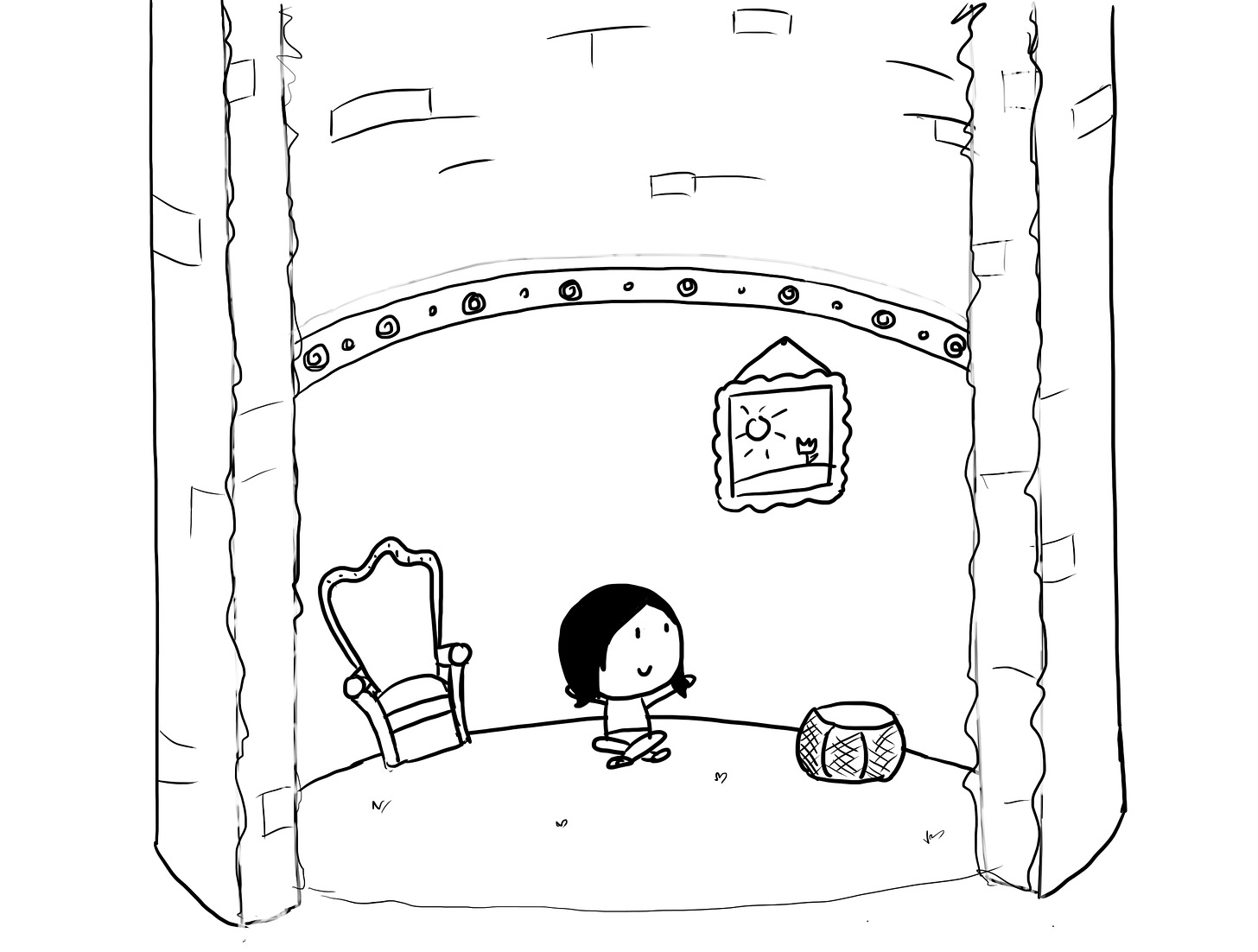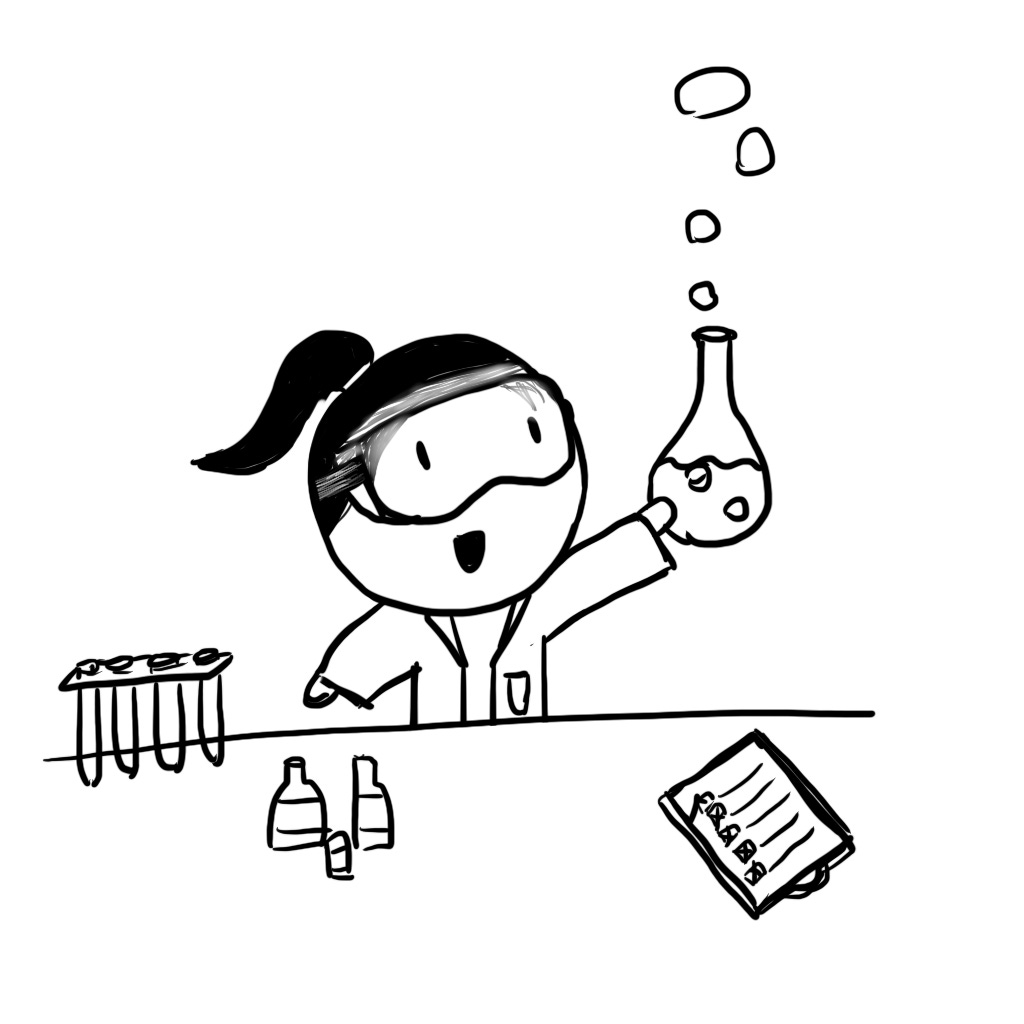The experimental mindset
and how adopting it changed my relationship with failure
I’ve never been good at facing failure.
College was the first time that I really had to deal with it. But instead of confronting it head on, I ran.
When I kept losing against players that I thought I was better than in college tennis tryouts, I dropped out of the process and stopped playing the sport entirely.
When I came out of my first pottery class with a super lopsided looking bowl, I proclaimed that I was too stressed for this and quit.
When I struggled to make progress in my for fun robotics class, I, again, dropped out.
I was so afraid of failing that sometimes, I didn’t try at all. When it came to job hunting, I never seriously studied for any technical interviews. I said that I didn’t have the time, but also not studying meant that if I got rejected, I could blame it on that rather than my overall abilities.
I could always come up with a reason to justify my choices. I didn’t apply for big brand name companies because I liked small companies. I didn’t seriously try out for high level frisbee teams because I liked being the underdog. Yes I knew I was playing it safe, yes I knew being this afraid of failure wasn’t great, but it didn’t seem all too bad. Even with my avoidance of failure, I managed to get into MIT, secure internships, and get a job. The model was working just enough for me to let it be.
—
A career crossroads
Until it wasn’t.
When my last company had massive layoffs, I was thrown into a “sabbatical” for the second time in 2 years. While last time, I ran out of the time and money to be able to consider a career pivot, this time around, I knew I wanted to do something different. But when I started seriously thinking about what that might look like, I froze.
All my life, I had someone to tell me what was/wasn’t worth my time to pursue, like tech, computer science, STEM — those were worth pursuing. But now that I wanted to step away, I no longer had a paved path in front of me. And it became terrifying to take even one step forward.
Was it worth it to take the leap?
What if I fell?
What would that mean?
It means that you failed. That you took a dumb risk. That you threw away all of the prestige, security, and comfort of tech for nothing.
I couldn’t shake that response from my head. It was true - if I failed, all I would be left with was this feeling of dumbness, this feeling of “I should have known this wouldn’t work”. And why should it have? People didn’t go to MIT to become coaches or community builders or writers. They went there to get good at tech.
As much as I wanted to change my career path, I couldn’t. My fear of failure, which had had no real consequences so far, was now actively holding me back.
—
The experimental mindset
I first learned about the experimental mindset during my sabbatical in 2021. I was helping a company run a series of events that they had never held before, and I was feeling quite nervous about the outcome. That was when the project lead said something that really stuck with me.
“Let’s not worry about how each event goes. Instead, let’s think of all this as an experiment.”
An experiment. When she said that, everything clicked.
Having dedicated so much of my life to STEM, I knew how to run experiments. You come up with a hypothesis, you test it, and then you analyze the results.
In an experiment, it’s okay for your results not to match what you hoped for. That’s not failure. It’s actually a good thing, because it means you now have useful information to design your next iteration. The fear I had of getting bad results no longer made sense in an experiment. The only way that you can truly fail is if you don’t try to run your experiment at all.
The experimental mindset was so freeing that I decided to apply it to my other projects in my sabbatical. I evolved my stories with strangers project to experiment with pen art. I decided to see what would happen if I shared my writing with my closest friends and family. Before, I was paralyzed by the future — growing followers, brand recognition, money, scale. Now, I felt free to be curious and learn.
—
Applying it when it matters
Until this point, I had only applied the experimental mindset to smaller, more inconsequential projects. What would it look like to let myself experiment with my career?
I gave myself 5 months to experiment with life coaching. With a supportive push from some close friends, I got the courage to ask on Instagram if anyone wanted to do free coaching sessions with me. I stumbled through my first coaching session. Then I did it 26 more times. I tested out various methods I had learned from different coaching philosophies. I reached out to coaches to learn from them and say hello. I managed to ask someone calmly and curiously if they’d pay me for my services. I tried on product management specific coaching. I created my first draft of my coaching website and asked people for feedback.
The experimental mindset didn’t completely do away with my fear, but it did make it easier to try. The more I tried, the more I learned, and the more I realized how much I loved coaching and wanted to do it full-time.
—
It’s all in the perspective
It wasn’t until I was offhandedly thinking about failure one day that I noticed that as much as I had feared failing at a new career path, somehow I hadn’t experienced any failures since I had started coaching. How was that possible?
That’s when I realized - if I looked at the past few months from a failure mindset, I was still experiencing failure. I failed at my very first coaching session when my client said he probably wouldn’t try a session again. I failed when the people who worked with me for free didn’t want to continue if it was paid. I failed every time a person didn’t respond to my followups after their free session. Yet these instances didn’t feel like failures.
Because when I put my experimental goggles on, they weren’t failures. They were results that fueled my learning and growth.
Failure didn’t have to be part of the picture. I didn’t have to keep that mindset. In that mindset, everything threatened my ego, no matter how small. That mindset was what stopped me from giving things my all.
But with an experimental mindset, trying has become exciting. Experimenting has given me the courage to dream.
—
Coaching was huge in helping me realize the value of trying on different perspectives like the experimental mindset. If you’d like to chat about your relationship with work and explore some other ways to approach it, sign up for a free coaching call with me here. I’d love to chat :)




